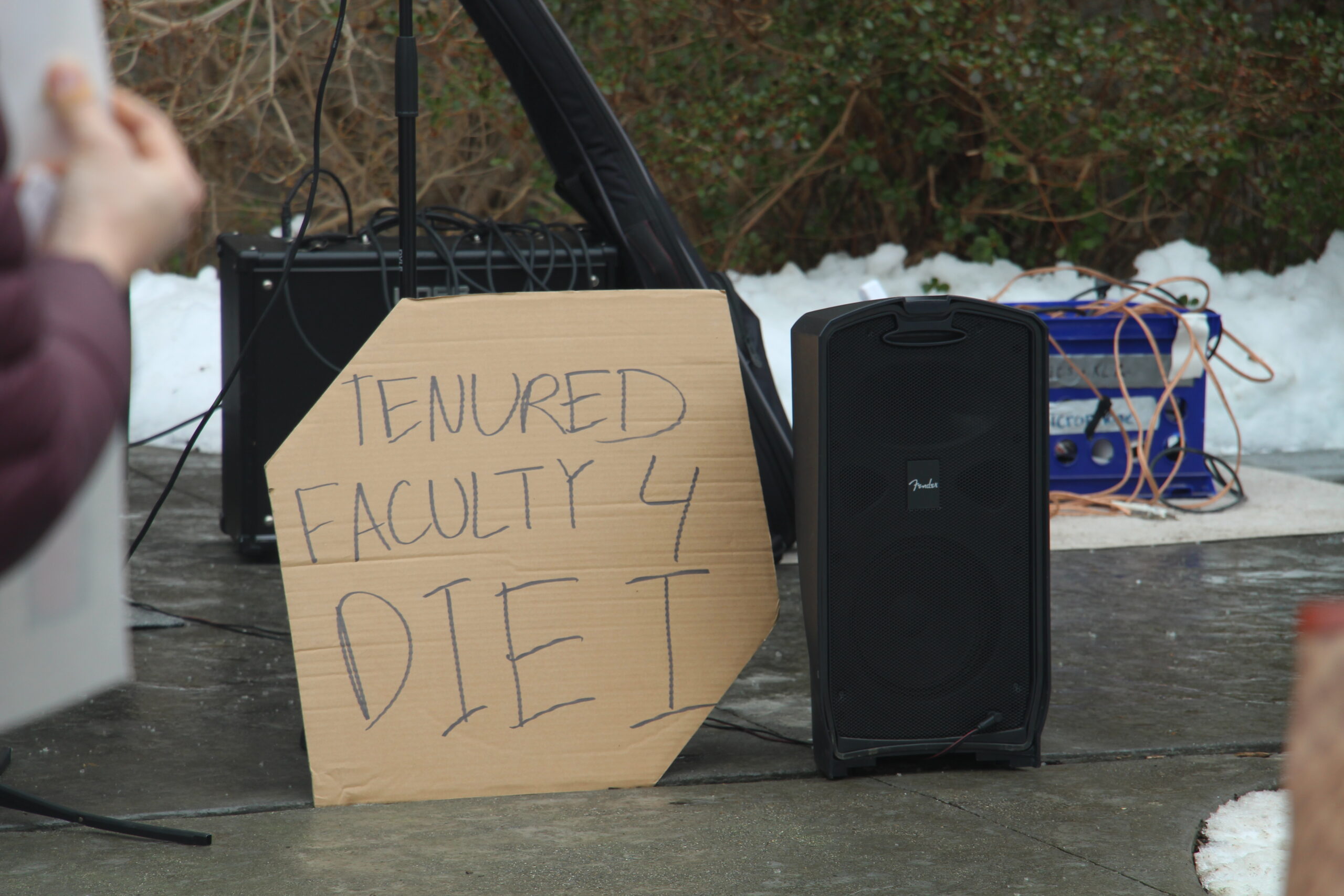After former Venezuelan President Hugo Chavez’s death in March 2013, current President Nicolas Maduro, Chavez’s handpicked successor, took office. President Maduro has spent almost his entire tenure dealing with the monumental problems facing his country. These dilemmas have sparked widespread riots and protests. The opposition is protesting mainly because of the 68% inflation rate, alarming crime rate and the scarcity of basic and medical commodities. President Maduro has reacted to these protests with an iron fist. According to the international organization Human Rights Watch (HRW), 41 people have been killed as a result of violent clashes with protesters, “almost all of them civilians,” and there has been “strong evidence of rights abuses in 45 cases involving 150 civilians in Caracas and three states.”
Just two weeks ago, Rodolfo Gonzalez, also known as “El Aviador,” was found hanging from a rope in his cell at the headquarters of Venezuela’s Bolivarian Intelligence Service (SEBIN). He had been detained on accusations of plotting against the government by President Maduro. Gonzalez is one of an unknown number of political dissenters detained by Mr. Maduro and SEBIN on charges of attempting to overthrow the government. Other big names include Leopoldo Lopez, the former opposition leader who was jailed about a year ago on charges of inciting violence and protests that lasted four months and led to the death of 43 Venezuelans. Antonio Ledezma, the mayor of Caracas, was most recently jailed on accusations of plotting violence against President Maduro’s government.
The president’s socialist policies, nationalization of large industries and falling oil prices have plunged the economy into inflation. Coupled with this is a new exchange rate that attempts to ease devaluation of the bolivar, Venezuel’s currency. Some businesses, students and priority imports can be approved for an exchange rate of either 6.3 or 12 bolivares per U.S. dollar, while the market has been trading at about 170 bolivares per dollar, and the black market right around 190 bolivares per dollar. The incredible devaluation has hampered an economy fueled by oil exports, which have decreased following oil’s recent price fall. As a result, importers have had serious difficulties purchasing basic commodities, which has enraged the public.
Ines Finol ’15, and William Wuyke, Connecticut College’s first appointed Athletic Strength and Conditioning Coach, both Venezuelan natives, presented two Venezuelan perspectives on the eonomic climate of the nation.
Finol and Wuyke both explained that it was commonplace to see customers fighting over items in stores and carrying purchased items such as flour, oil and sugar in massive quantities.
“When walking on the street, you tend to look at other peoples’ bags who walk past,” Finol claimed as Wuyke nodded in agreement. She said that this was to mentally account for items they have that subsequently might be out of stock at the supermarket. As she showed me a picture of the industrial sized toilet paper roles used at her home in Venezuela, Finol told me she purchased them in the United States at the request of her parents because it was easier to access such items here. The newest rule, they told me, requires an ID or fingerprint to gain access to stores in order to control purchasing.
The Wall Street Journal recently wrote an article describing the effect of the country’s scarcity crisis on health care. Goods ranging from medication and medical devices to condoms and blood supplies have crippled the health care system and left individuals with easily treated conditions and diseases in mortal danger. Patients are being turned away due to a plain inability to provide treatment. They are forced to resort to bargaining on the black market, hope for a special favor from a connected source, beg and plead on social media for donations or patiently waiting in a state of paralyzing fear and grief for death to take them.
Inflation and commodity scarcity are real and scary dangers in Venezuela, yet they almost pale in comparison to the abundant fear of crime and the police-state-like atmosphere described by Finol and Wuyke.
Wuyke, a former Venezuelan Olympic runner and relatively well-known national figure, explained, “from the hours of 8 p.m. to 5 or 6 a.m., I do not go out running. I grew up in a somewhat tough but safe area, but now I do not run there ever,” Wuyke said, explaining that this is due to the rampant robbing, kidnapping and murdering that occur.
“I do not take my phone out in public,” said Finol, fearing the possession of a simple smart phone could lead to an onlooker assaulting her for the technology.
Another criminal practice is called express kidnapping, wherein kidnappers research a potential victim’s family money, their movements and even receive tips from bank tellers in order to cleanly pick them off the street and demand a hefty ransom within hours. Failure to produce such a ransom results in a quick death for the victim in order to ensure the kidnappers notoriety and policy of non-negotiation. People especially concerned and equipped with the ability to purchase kidnapping insurance do so.
According to the Venezuelan Violence Observatory (VVO), Caracas, home of the recently imprisoned opposition leader Ledezma, has a murder rate of 100 for every 100,000 citizens. Venezuela had around 24,000 murders last year. In comparison, the U.S. has a murder rate of 4.3 for every 100,000 citizens according to Reuters. In the poverty-ridden slums, known as barrios, where Chavez’s movement gained most of its followers, guns are commonplace as crime has increased. Civilian paramilitary groups, some supported by Mr. Maduro, patrol the areas and will disallow residents from leaving to attend protests. Cops and military members are quick to crack down on dissent and perceived illegal behavior. Wuyke and Finol both described an atmosphere of constant fear in terms of both crime and criticizing the government.
The turmoil may spell uncertainty for the future of the citizens of Venezuela, but U.S. relations with Venezuela provide an interesting framework for how the upcoming diplomatic battle between the two nations will proceed. In recent months, tensions between Venezuela and the U.S. increased substantially. President Maduro has accused the U.S. of backing opposition groups in attempting to overthrow the current government, a claim he has used in connection with the imprisonment of political opponents such as Ledemza. The U.S. has denied these accusations, retorting they are empty rhetoric deployed to hide his country’s economic woes, crime rates and lack of basic products.
Recently, President Barack Obama signed an executive order saying that Venezuela posed an “extraordinary threat to the national security of the U.S.,” and imposed sanctions on seven Venezuelan military and intelligence officials, accusing them of human rights violations. These sanctions were also put on members of their families and barring them from doing business with American citizens, traveling to the United States, and possibly having their assents in the U.S. seized. In response, Mr. Maduro has required the U.S. to reduce their embassy size, placed new restrictions on U.S. visa applicants and have even taken out a full page ad in The New York Times condemning President Obama’s actions and declaring that Venezuela is not a threat to the United States national security in any way.
While the U.S. denies Mr. Maduro’s accusations of backing opposition efforts to overthrow the government, it is interesting to note that Freedom of Information requests and Wikileak cables have shown a history of the U.S. funneling money to Chavez opposition groups. Agencies such as the United States Agency for International Development (USAID) and the National Endowment for Democracy (NED) had given up to $20 million dollars to organizations in Venezuela. The goal of these organizations is not regime change, but rather “democracy promotion.” The U.S. was also quick to be one of the first nations to recognize the opposition during the failed coup against Chavez in 2004. Declassified CIA documents revealed that the U.S. knew of coup plans in 2004, but refrained from making them known to Chavez or his people. There is no evidence to support Mr. Maduro’s claims that the U.S. is backing coup efforts, it seems likely that he is trying to distort what the U.S. calls democracy promotion, in order to prove they are attempting to replace his government.
Adding to this funky web of diplomacy, the 11 other members of the United South American Nations (USAN) and Cuba have all backed Venezuela in condemning the actions of the United States. Venezuela, as one of the bigger oil exporters in the western hemisphere, has much political sway when it comes to these nations. Cuba, for instance, received millions of barrels of oil in return for sending doctors to Venezuela to work at understaffed hospitals. Venezuela is also one of the United States’ top five oil exporters.
Amid a severe economic crisis, widespread civil unrest and increasingly hostile diplomatic relations with the strongest power in the western hemisphere, Venezuela’s future looks bleak. President Maduro has received the power to legislate by decree in response to the U.S. sanctions, a move that could also give him greater power over political dissenters as well. The turmoil is evolving, but having to contend with all these crises in such a condensed format will prove difficult at best for President Maduro and for the citizens of Venezuela.









